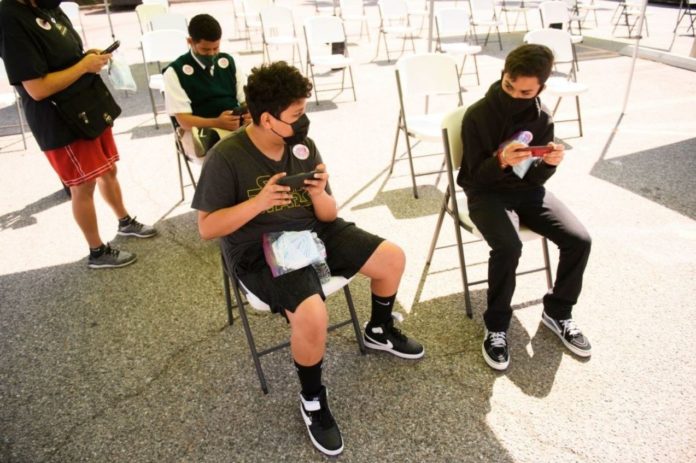New research suggests that messages highlighting the personal health advantages of Covid-19 vaccines have the greatest potential of boosting immunisation rates throughout the country.
The economists Ashworth, Linda Thunstrom, Todd Cherry, Stephen Newbold, and David Finnoff from the University of Washington College of Business were among the first to identify vaccine hesitancy as a potential stumbling block in the effort to end the COVID-19 pandemic, and vaccine hesitancy has turned out to be widespread.
According to recent polls, 60-70 percent of people in the United States plan to get vaccinated against COVID-19, which falls short of the threshold set by public health experts for achieving herd immunity.
- Scientists in Fear of This New Predator From Red Sea Eating Native Species in Mediterranean
- Does This Mean We Stopped Being Animal and Started Being Human Due to ‘Copy Paste’ Errors?
- The One Lifestyle Choice That Could Reduce Your Heart Disease Risk By More Than 22%
- Aging: This Is What Happens Inside Your Body Right After Exercise
- Immune-Boosting Drink that Mimics Fasting to Reduce Fat – Scientists ‘Were Surprised’ By New Findings
To evaluate the effect of a number of public health messages on vaccination intentions, the researchers polled a random sample of 3,048 U.S. adults. Three messages were compared: personal health benefits; health benefits to family, friends, and community members; and economic advantages; all accompanied by a fourth message that addressed the rigor and safety protocols of the vaccine development process. They also looked at the impact of integrating various pieces of information.
A public health message that encourages greater use of private health benefits substantially increases planned vaccinations by 16 percentage points, a greater impact than the other messages.
“The strong response to the private benefit message may partly reflect the political polarization of vaccine hesitancy in the U.S.,” the researchers wrote.
“Conservatives are more hesitant and have a particularly individualistic worldview. They might, therefore, be particularly responsive to information that stresses private benefits. Our data offer some support for this idea: The effect of the private benefit message on vaccine intentions is larger for conservatives than for moderates or liberals.”
According to the economists, the rise in vaccination intentions was greater for a group that just got the private benefit message than for a group that received all three messages.
“This suggests there are no benefits to communicating several different types of benefits, potentially due to information overload,” they wrote.
According to the researchers, the source of information is also likely to be important, and trustworthy sources may differ among subgroups. Previous study has shown that messages encouraging social distance are more successful when delivered by a family physician rather than a governor or a private person.
The study further says that people who have low confidence in government organisations are 14 percent less likely to want a vaccine than those who have medium trust. 90% of individuals who do not want to get vaccinated are concerned about the vaccine’s adverse effects and novelty, and 75% have lost faith in vaccine makers and the Food and Drug Administration to accurately communicate a vaccine’s dangers and efficacy.
While the economists’ results indicate that communications regarding the private advantages of COVID-19 immunisation are the most successful, they recommend further study into the efficacy of other information channels for vaccine promotion.
- Scientists in Fear of This New Predator From Red Sea Eating Native Species in Mediterranean
- Does This Mean We Stopped Being Animal and Started Being Human Due to ‘Copy Paste’ Errors?
- The One Lifestyle Choice That Could Reduce Your Heart Disease Risk By More Than 22%
- Aging: This Is What Happens Inside Your Body Right After Exercise
- Immune-Boosting Drink that Mimics Fasting to Reduce Fat – Scientists ‘Were Surprised’ By New Findings
“Our findings suggest that several forms of public messages can increase vaccination intentions, but messaging that emphasizes personal health benefits had the largest impact,” says UW Ph.D. student Madison Ashworth, lead author of a paper that appears today in the Proceedings of the National Academy of Sciences.
Photo by PATRICK T. FALLON/AFP via Getty Images
